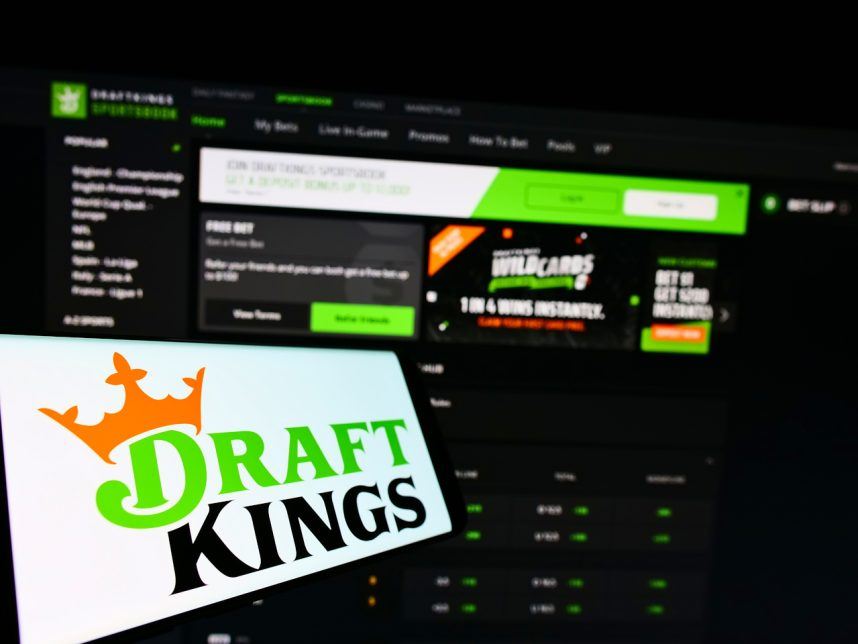Study: Crackdowns on Illegal Sportsbooks are Working in US
Posted on: September 3, 2025, 12:47h.
Last updated on: February 12, 2026, 01:09h.
- US states cracking down on illegal sportsbook operators are seeing an uptick in account sign-ups on the regulated side
- Nearly one-third of the US gaming market is illegal
- Pennsylvania on Wednesday issued a warning for bettors to stay away from unregulated sites
Vancouver-based GeoComply Solutions Inc., the provider of anti-fraud and geolocation solutions, has released data showing that US states cracking down on illegal sportsbooks are seeing more players heading to the regulated market.

“These findings demonstrate that enforcement works,” said Kip Levin, CEO of GeoComply. “When states crack down on illegal sportsbooks, players migrate to the legal, licensed market, where they’re protected and where their play generates state tax revenue. Consumers often can’t tell the difference between a state-regulated sportsbook and an offshore site, but when regulators take action, it raises awareness and helps guide players to safer, accountable operators.”
Along with its head office in Vancouver, GeoComply has offices in Toronto and Montreal, with clients around the globe, providing fraud prevention and cybersecurity solutions that detect location fraud and help verify a user’s true digital identity.
Cease-and-Desist Letters
The study was released as the NFL season is about to start on Thursday. The professional sports league generates the most betting action in North America.
The American Gaming Association (AGA) last week sent out a statement saying that it estimates Americans will wager US$30 billion on the upcoming NFL season via legal sportsbooks in the US.
AGA Study on Illegal Sportsbooks
In its study, GeoComply analyzed player engagement and new account growth during August across 10 US states with similar adult populations. Over the past year, five states – Arizona, Louisiana, Massachusetts, Michigan, and Tennessee – have issued cease-and-desist letters or taken other actions against offshore operators. Five other states — Iowa, Indiana, Kentucky, North Carolina, and Virginia — have not.
States that pursued enforcement against illegal sites recorded an average of 10% more year-over-year growth in active players during August compared to the states that didn’t go after the illegal operators.
New account sign-ups in August were 39% higher in the enforcement states, the study said.
Pennsylvania Issues Warning
Last month, the American Gaming Association (AGA) released a study revealing that illegal gaming comprises nearly a third (31.9%) of the US market. Americans wager US$673.6 billion annually with illegal and unregulated operators. The illegal market has grown 22% since the AGA’s last report in 2022.
The illegal and unregulated gambling market generates US$53.9 billion in annual revenue, robbing state governments of $15.3 billion in tax revenue annually.
Illegal offshore sportsbooks remain the biggest competitor to the legal market, not other regulated operators,” said GeoComply’s Levin. “A coordinated federal effort would further accelerate the positive shift that has been started by state-level enforcement.”
The Pennsylvania Gaming Control Board issued a warning Wednesday for the public to be cautious not to place bets on illegal online platforms (over 90% of the wagering is being placed via online). There’s a link on its home page of regulated sites in the state, available to Pennsylvania bettors.
“For a gambler to protect themselves, they should be very hesitant to use Illegal offshore sites,” said Board Executive Director Kevin O’Toole. “Only on the Pennsylvania regulated sites can a bettor choose to utilize self-imposed limits to better control their wagering activities.”
“Legal, Board-regulated online sportsbooks must offer options for a player to control their gambling activity, such as limiting the amount of time they can spend on a site, limiting the amount of money they can deposit, or provide a limit on the amount they wager,” he added. “In addition, the Board’s approved operators offer ‘Cool-Off Periods’ that establish a short-term ban of days, weeks or months for the bettor who can limit their sports wagering activity.”
No comments yet